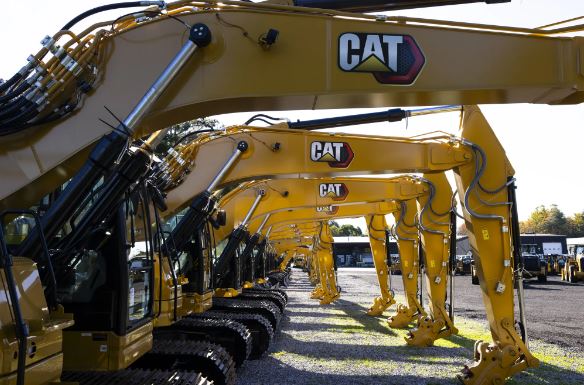Concerns about American jobs being outsourced to Mexico have intensified as major manufacturers ramp up production south of the border. The United Automobile Workers (UAW) union has recently criticized the Biden administration for not pursuing accusations of labor abuses by a Mexican subsidiary of Caterpillar, an agricultural equipment maker.
In late June, the administration informed a group of unions that it would not pursue a complaint alleging that the subsidiary retaliated against striking union members by blacklisting them and making them employment. This decision has sparked controversy, as the ability to police such violations is a key provision of the United States-Mexico-Canada Agreement (USMCA), aimed at reducing incentives for American employers to move jobs to Mexico.
Shawn Fain, UAW President, expressed frustration, stating that Caterpillar workers in Mexico face harassment and blacklisting without support from the USMCA. The UAW was among several labor groups that brought the complaint.
The Biden administration declined to comment on this specific case but highlighted its pursuit of two dozen other cases under the trade agreement.
This issue has surfaced during a U.S. election campaign, where the protection and creation of manufacturing jobs are significant topics. Former President Donald J. Trump made significant inroads in key states like Michigan, Wisconsin, and Pennsylvania in 2016 by addressing the loss of manufacturing jobs to other countries. President Biden’s 2020 campaign promises to revive U.S. manufacturing also helped secure those states.
In the same period, the number of Caterpillar jobs in the United States increased to about 50,000, although this was a smaller percentage increase. The data does not differentiate between production and white-collar workers.
CNH, another equipment manufacturer, recently informed the UAW that it was moving over 200 jobs from Racine, Wisconsin, to Mexico. Similarly, John Deere is building a new facility in Mexico and has announced layoffs affecting hundreds of workers in Iowa and Illinois.
Richard Glowacki, chairman of the bargaining committee at the UAW local representing CNH workers in Racine, criticized offshoring, stating that American workers are at a disadvantage due to differing labor standards. A CNH spokesperson said the company was redistributing manufacturing activities not central to Racine tractor production, and a Deere spokeswoman attributed the layoffs to lower commodity costs, order volumes, and a softening construction market.
Low wages for hourly workers in Mexico, often blamed on established unions that suppress wages and benefits, exacerbate the issue. The USMCA’s rapid response mechanism allows workers or unions to report rights violations to the U.S. government, which must investigate within 30 days. If sufficient evidence is found, the U.S. asks Mexico to review the case, potentially appealing to a multinational panel if the response is inadequate.
The Biden administration previously pursued a blacklisting case under this mechanism successfully and reinstated a worker at the Caterpillar plant fired for union organizing. However, the recent decision not to pursue the complaint against the Mexican subsidiary highlights the challenges in addressing labor abuses.
Caterpillar workers in Nuevo Laredo joined an independent union in June 2023 and went on strike in September seeking a raise. The largest category of workers at the plant earned about $18.70 a day, below the legal minimum wage in the area. The company’s latest offer is about $21.70 a day, while the union demands $24.60, along with back pay for striking workers.
The USMCA complaint alleges that workers have been blacklisted for months, making it difficult for them to find other jobs during the strike. One worker had a job offer rescinded after training, allegedly due to being from the striking plant.
Joyce Sadka, an economist, noted that blacklisting is ingrained in Mexican labor markets and often difficult to trace to a single culprit. Daniel Rangel Jurado of Rethink Trade, which joined the Caterpillar petition, said the enforcement mechanism struggles with diffuse instances of blacklisting.
A U.S. Trade Representative official stated the agency is actively addressing more systemic issues, with broader blacklisting instances potentially handled through the rapid response mechanism and diplomatic engagement with Mexico.

